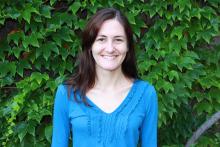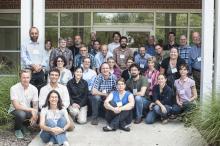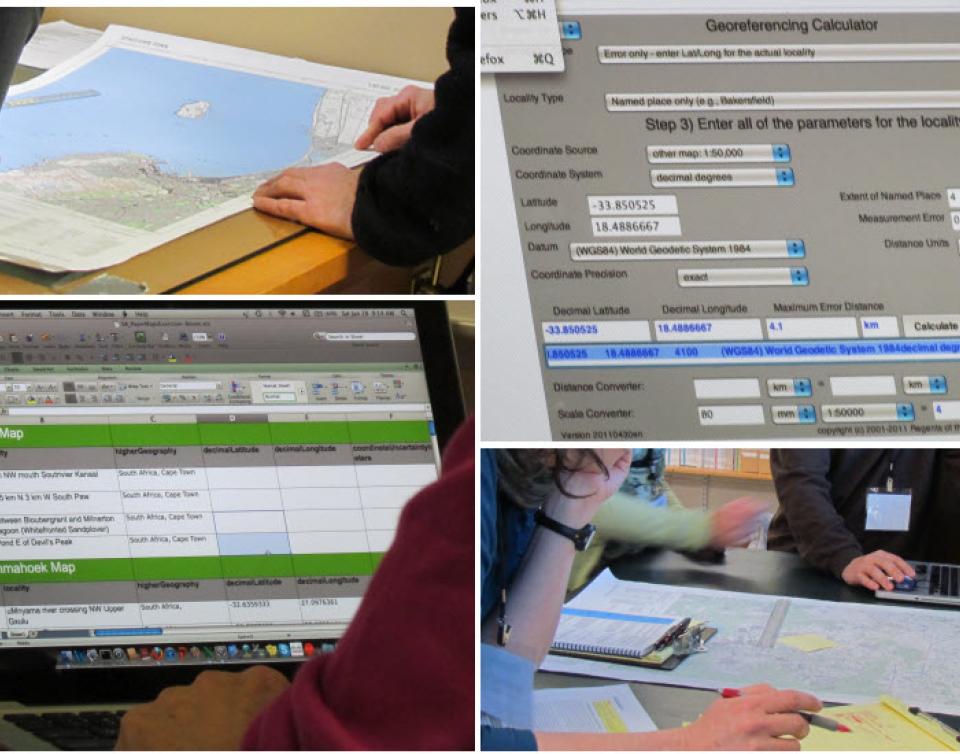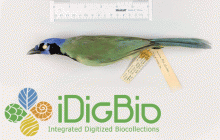Austin Mast interviews Libby Ellwood, our newest postdoctoral scholar.
Mast: It's my pleasure to welcome you as iDigBio's newest postdoctoral scholar, Libby. Your research focus will be on broadening public participation in the digitization of biodiversity research specimens. This is a goal to which your previous research background is well suited. What do you see as the most relevant aspects of your previous graduate and postdoctoral research for this new position?
Ellwood: Thanks, I’m thrilled to be a part of iDigBio’s dynamic team. I learned quickly in my graduate career that there is a wealth of information contained in museum specimens and that they are extremely useful in contemporary scientific research.
I earned my PhD in Biology from Boston University where my research focused on the effects of climate change on plants and animals. The metric I used to assess how much plants and animals were affected was phenology, the timing of biological events. Phenology includes the timing of when plants flower, when insects emerge and when migratory birds arrive, and many of these annual activities are impacted by temperature. In order to evaluate whether an organism’s phenology has changed, I first needed to understand the historical phenology—the date that a certain plant was flowering a hundred years ago, for example. Old journals, including those of Henry David Thoreau, were invaluable for this research. Some of these resources I found digitized online, while many others were tucked away deep in the special collections of museums and libraries. These records, combined with modern-day observations of the same plants and animals, allowed me to track phenology over 160 years. Several interesting discoveries came from this research, including the finding that many plant species are now flowering up to three weeks earlier now than they were in the 1850’s when Thoreau was observing them!



 iDigBio is pleased to announce the third in a series of preparation-specific workshops focusing on organizing, launching, maintaining, and/or enhancing a biological collections digitization program. This workshop will focus on digitization of dried insect specimens, stored in drawers and trays, either pinned or in packets. The workshop will be held at The Field Museum, Chicago, Illinois April 24–25, 2013. We have funding to support travel and per diem for 24 participants. April 23 and 26 will be travel days, with a welcoming reception early evening, April 23. Those desiring to attend this workshop should complete the online application no later than February 15, 2013. For more information, contact Gil Nelson.(
iDigBio is pleased to announce the third in a series of preparation-specific workshops focusing on organizing, launching, maintaining, and/or enhancing a biological collections digitization program. This workshop will focus on digitization of dried insect specimens, stored in drawers and trays, either pinned or in packets. The workshop will be held at The Field Museum, Chicago, Illinois April 24–25, 2013. We have funding to support travel and per diem for 24 participants. April 23 and 26 will be travel days, with a welcoming reception early evening, April 23. Those desiring to attend this workshop should complete the online application no later than February 15, 2013. For more information, contact Gil Nelson.(





